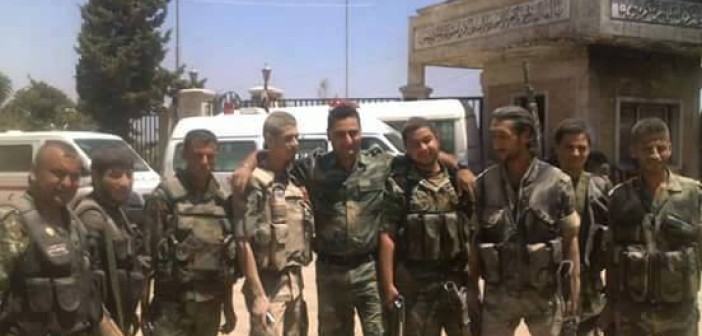Main Government Supply Line to Aleppo Cleared; Syrian Army Captures Al-Rashadiyah

The Khanasser Highway that provides the Syrian Government and the Armed Forces access to the Aleppo Governorate was under attack for two straight months after the Syrian Al-Qaeda group “Jabhat Al-Nusra” and their allies from Harakat ‘Ahrar Al-Sham captured the village of Al-Rashadiyah in the southeastern part of the province.
However, on Tuesday morning, the Syrian Arab Army – in coordination with the National Defense Forces (NDF) and the Palestinian militia “Liwaa Al-Quds” – were able to recapture the imperative village of Al-Rashadiyah near the Khanasser Highway; thus, alleviating much of the threat the Islamist groups posed to the Syrians utilizing this roadway.
With the SAA’s recapture of Al-Rashadiyah, the Islamist militias turned their focus to the Aleppo International Airport, where they launched a fierce assault onto the neighboring Nayrab Palestinian Refugee Camp.
Despite the intensity of the attack, the fighters from Liwaa Al-Quds and the NDF were able to fend off the Jabhat Al-Nusra offensive for the third straight day.
Pro-rebel social media activists reported the capture of the Air Force Intelligence Building in the Al-Zahra Association Quarter on Monday; however, sources at the Al-Zahra Quarter have confirmed to Al-Masdar News that all news of its capture have been fabricated.
On Tuesday, Syrian Arab Army soldiers posed for a photograph in front of the orphanage that pro-rebel social media activists claimed was under Nusra control; this was also followed by an Al-Manar News crew filming the area with the SAA.







